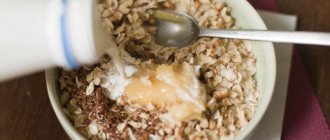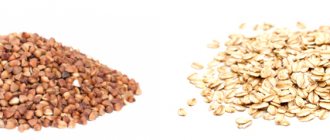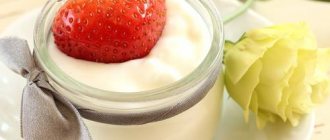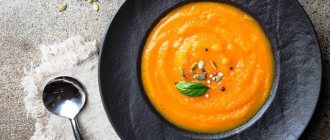A sweetener is a substance that gives a food product a sweet taste. Used as an alternative to sucrose as a result of illness, weight loss or other reasons. A distinctive feature of sweeteners is their low calorie content with the same intensity of taste.
The international association, which includes manufacturers of low-calorie products and sweeteners, classifies fructose, sorbitol, xylitol, stevioside, lactulose and some others as sweeteners.
Sweetener: harm and benefit
In the beginning, sucrose was a medicine. It was extracted from sugar cane and they tried to treat diseases with its help. Times changed, the value of sugar fell with each new discovery, and when they finally learned to extract sugar from beets, this sweet additive became cheaper and became available to everyone.
It took some time for medicine to pay attention to the natural negative effects of sugar. Today, even a child knows: sugar is harmful. Once in the body, granulated sugar is absorbed instantly, since its glycemic index is 100%. It contains no useful microelements, vitamins and minerals - only pure energy. Excessive consumption of sugar, which manufacturers use in the vast majority of products, leads a person to obesity, diabetes, and cardiovascular diseases.
It was under these conditions that the search for a sucrose substitute began. Some studies seemed inspiring: zero calories, but just as sweet. It was possible to add a sweetener to foods and not gain excess weight. For diabetics with a sweet tooth, the sweetener turned out to be a real salvation - sweets, but without the health risk.
Unfortunately, the dangers of sugar substitutes became known very quickly. Without threatening your figure, synthetic or natural sweeteners cause cancer, Alzheimer's disease, infertility, and dementia. Yes, despite the benefits of sugar substitutes, their harm is much greater than their benefits: laboratory studies have confirmed the development of neurological and oncological diseases. True, we were talking about impressive doses, hundreds of times higher than the daily norm, but still this was enough to alert the public.
The established restrictions add fuel to the fire. If a person suffers from diabetes, then fructose is contraindicated for him, and in case of heart failure, acesulfame-K is excluded. The list goes on for a long time. Sweetener is prohibited for pregnant women and children. As a result, opinions diverge at the most authoritative levels, leaving the common man with hundreds of unanswered questions.
The continuous development of science will ultimately provide more intelligible and elegant solutions. Sugar is harmful, and apparently so is sweetener. What then remains? Let's try to figure out what we have at the moment. Everyone must draw their own conclusions.
Known natural sweeteners
Let's look at the features of the most popular sweeteners.
Fructose is worse than sugar
It is obtained from honey, fruits and berries. Fructose is more harmful than sugar , and at the same time it is safer for humans. It is added to food and drinks. Fructose is even found in some medications. It disintegrates quickly, so it is suitable even for people with diabetes. The approximate price of fructose is 268 rubles. for 1 kg.
It is worth noting that this sweetener is far from the most harmless. It is recommended to consume no more than 40 g of fructose per day. If there is too much of it, it will begin to be stored as fat, make the liver less sensitive to the effects of insulin and negatively affect carbohydrate metabolism. Excess fructose will increase your risk of heart disease.
Stevia is better than fructose
This is one of the most popular natural sugar substitutes. This sweetener is especially considered the best for weight loss. It is obtained from the stevia plant, which is found in Central and South America. Stevia has a unique herbal aftertaste. It is a no-calorie sweetener. Stevia is safe for human health; it has no contraindications for use.
There are no cooking restrictions for this sweetener. It is often added to baked goods, dietary products, and drinks. The price of stevia ranges from 200 to 900 rubles. It depends on the quality, release form, and so on.
Erythritol - no harm to health
This sweetener is not very sweet, so you have to add quite a lot of it, but it has no calories. Erythritol is often used to create drinks, sweets, as a common sweetener, and in the production of pharmaceuticals and cosmetics. It is obtained from natural raw materials with starch: for example, from corn.
Erythritol does not damage teeth because it is not of interest to pathogenic microorganisms. This sweetener is safe as long as you don't take too much of it, and it also dissolves well in water. The price of erythritol is 300 rubles. for 180 g.
Sorbitol - be careful with it
Its source is starchy raw materials: for example, corn starch. This sweetener has a very low calorie content. Sorbitol is used in the food industry, as well as to create pharmaceutical and cosmetic products. Its average cost is 105 rubles. for 500 g.
This is a choleretic sweetener. It has a pronounced laxative effect. Sorbitol is not recommended to be used as a sweetener for too long, otherwise it may negatively affect the functions of peripheral nerves and the retina of the eye. People with diabetes should use sorbitol with caution. Its excess causes an exacerbation of pathology.
Natural sugar substitute
The main advantage of natural sugar substitutes is the natural composition. Their energy value is significantly lower than glucose, and their taste is just as sweet. This group of sugar substitutes includes, first of all, fructose, as well as sorbitol, isomalt, xylitol, etc.
Fructose
Fructose, like other natural sugar substitutes, is of plant origin. It is found in berries, fruits and honey. Outwardly, it is very similar to sugar, but much sweeter, and raises blood sugar levels 3 times slower. That is why when dieting, it is recommended to limit yourself to sweet fruits and berries - their sweetness is more than enough to feel the sweetish taste and not gain weight. As for diabetics, the use of fructose in their case is prohibited.
Surprisingly, the energy value of fructose is the same as that of sugar, but unlike the latter, it is harmless and even beneficial for active people with heavy physical activity. The biggest advantage is that even with a sweet sensation in the mouth, the teeth do not suffer from caries - the effect of fructose does not affect the enamel of the teeth.
This set of positive qualities of fructose has played a cruel joke on people. Despite the usefulness of this sugar substitute, its use also affects the figure, not so quickly, but can still cause obesity. The fact is that eating a sweet fruit is not the same as eating pure fructose from this fruit. Her concentration comes into play. So, you can use this substitute, but not more than 45 g per day and in the absence of excess weight or diabetes.
Sorbitol and xylitol
Sorbitol is found in apples, rowan berries, apricots, and seaweed. It is 2 times less sweet than sugar, has the same calorie content, but has almost no effect on blood sugar levels and slowly penetrates the tissues. This is where its advantages end, since for all its positive properties it causes flatulence, nausea, diarrhea and impairs digestion. Its use leads to the rapid development of gallstone disease.
Xylitol is found in the husks of cotton seeds and in corn cobs. It is as sweet as sugar, but causes bladder cancer.
With such a set of side effects, it is difficult to recommend such substitutes. The fault is again in their concentration.
Stevioside
Stevioside is better known as stevia. This is an extract of the herb of the same name. It is non-toxic, has no side effects, tastes good in itself and is affordable. For diabetics and those suffering from obesity, stevia is offered first.
Surprisingly, there is no information about the dangers of this substitute. This is most likely due to the recent introduction of stevioside into the market. How useful and harmless stevia is, time and further research will tell.
So far, among its disadvantages, only a very unusual taste can be distinguished, which is also lost with a number of products - cocoa, for example. Therefore, when creating your next culinary masterpiece, do not be surprised that a healthy dessert turns out to have an incomprehensible taste - with a bitter taste.
The best sweeteners for 2021
Today, the market offers a fairly large assortment of both synthetic and natural substitutes, so it’s quite easy to get confused about them. The proposed rating includes products selected taking into account safety in use and consumer preferences.
Synthetic
Aspartame Novasweet
The most controversial and best studied of the substitutes. Aspartame contains practically no calories, so it is allowed for diabetes. However, prolonged use of aspartame causes side effects: headache, ringing in the ears, allergic reactions, symptoms of depression, and sleep disturbances. Excessive use of aspartame is very dangerous because blood sugar levels often rise.
The domestic drug with low calorie content has a fairly high level of sweetness. Compared to regular sugar, the taste of aspartame develops much slower, but lasts longer. High temperatures and heat treatment destroy the drug, so it is not advisable to use it for making jam, jam or jam, as well as baked goods. It will perfectly sweeten tea or coffee, ready-made meals or cocktails.
Aspartame Novasweet
Advantages:
- no bitterness, pleasant taste;
- 1 tablet replaces 1 spoon of sugar;
- has a slight aftertaste;
- affordable price tag;
- The packaging is quite large - 650 tablets.
Flaws:
- many side effects with prolonged use;
- dissolves well only in hot water.
Cyclamate Milford
It is rightfully considered one of the best and most popular sweeteners. Widely used for sweetening both food products and medicines. Cyclamate is not absorbed by the body, there is a serious risk of negative consequences and health problems, so the daily dose is limited to 10 mg. The substitute is low-calorie - only 20 kcal, so you don’t have to worry about the possible appearance of excess weight as a result of its use.
Cyclamate Milford
Advantages:
- low calorie content;
- You can sweeten both drinks and medicines;
- manufactured in strict compliance with all quality and safety standards;
- sweet, pleasant to taste;
- easily and quickly dissolves in water.
Flaws:
- Only small doses are allowed, since the drug is not absorbed by the body.
Saccharin
The long-known synthetic sugar substitute was previously very popular, but has lost ground, and there are two serious reasons for this: the presence of a metallic taste, and standards have been violated.
Saccharin
Advantages:
- replaces the main product well;
- non-caloric.
Flaws:
- unpleasant metallic taste in the mouth;
- does not meet the required safety and quality standards.
Experimentally, a direct connection was found between the use of saccharin and the development of bladder cancer. Saccharin is not officially banned as long as necessary research is carried out.
Natural
The best sugar substitutes, repeatedly tested and completely safe, are, of course, natural, and the best of them is stevia. Zero calories, guaranteed safety and only benefits for the body. Sweet tooth lovers can rejoice, because an excellent and very healthy sweetener has been found for them.
Stevioside
Manufacturers call it a natural, non-calorie sugar substitute based on the highest purity stevia extract and erythritol. All necessary information about the product is available on the packaging. This is a premium sugar substitute, the use of which does not produce unwanted effects, and the complete absence of calories is an invaluable advantage.
We must not forget that stevioside has a specific herbal taste and the same aftertaste. It is allowed to be used for various forms of diabetes, as it has a zero glycemic index. The substitute can be added to cold or hot drinks, as well as to various dishes.
Stevioside has no effect on blood glucose levels at all. Its consumption is quite economical - 1 cube replaces 2 teaspoons of sugar.
It is recommended to use a substitute in preparing hot drinks. Cubes added to prepared dishes take a very long time to dissolve.
The product is ideal for those who want to lose excess weight, as well as for all kinds of diets.
Stevioside
Advantages:
- natural;
- no calories;
- can be used by people suffering from diabetes;
- economical;
- zero GI.
Flaws:
- inconvenient for cooking because it dissolves poorly;
- has sloppy packaging.
Fructose
An ideal product with a pleasant taste that is easily absorbed by the body. Natural fructose is present to a greater or lesser extent in fresh fruits, berries and vegetables. It is 2 times sweeter than sugar and has a low glycemic index of about 19 units, which allows those who suffer from diabetes to safely consume fructose. Fructose significantly enhances the taste of fruits and berries; it is used in the preparation of jam, marmalade and marmalade.
A domestically produced sugar substitute, fructose has a low calorie content, but consumption must be kept under constant control, since excess fructose can easily turn into glucose. Fructose is known for its tonic and activating properties, therefore it is very popular in the sports environment.
Fructose
Advantages:
- easily absorbed by the body;
- low calorie;
- approved for people with diabetes;
- pleasant to the taste;
- economically consumed because it is twice as sweet as sugar;
- has an affordable price.
Flaws:
- continuous use is not recommended;
- An excess of fructose in the body leads to the formation of fat cells.
Sucralose Milford
Those who have decided to switch to sports nutrition need to think about a sweetener. In this case, Sucralose is one of the best options. It tastes 600 times better than regular sugar. The energy value is 0 kcal, and the product is absolutely safe. It is added to tea or coffee, various cocktails. Also often used in preparing porridges. You can determine the dosage yourself, based on your taste preferences. The composition contains only sucralose, it does not contain gluten or other additives. It is liked by those who play sports; it is used by diabetics, vegetarians and vegans.
Sucralose Milford
Advantages:
- glycemic index equal to 0;
- convenience and versatility of use;
- completely natural composition of the product;
- no danger of developing caries or damaging tooth enamel.
Flaws:
- not detected.
Erythritol
This natural sweetener is produced in Russia. It is notable for its zero calorie content, absence of odor and consequences in the form of changes in blood glucose levels. Erythritol is actively used in cooking, despite the fact that its taste is inferior to regular sugar.
The sweetener has a second name - “melon sugar”. It appeared on the market relatively recently, but is gradually gaining popularity. Its main advantage is that it does not affect the level of glucose in the blood. This quality makes it popular among diabetics. The energy value of erythritol is 0 kcal. Users respond positively, especially those who add sweetener to baked goods praise it. However, you need to remember that its sweetness is less than that of sugar, so the consumption will be higher.
Erythritol
Advantages:
- natural;
- harmless;
- suitable for those who have a violation of the volume of substances;
- it can be used by diabetics;
- harmless to tooth enamel.
Flaws:
- high consumption.
Royal Forest Carob Pekmez
Carob syrup is great for baking, ice cream and desserts. It can be used as a salad dressing. It tastes similar to buckwheat honey with a little chocolate added. Sweeteners contain useful microelements such as magnesium, manganese, iron and calcium.
Carob syrup can be a good help in treating coughs and migraines. It has a bactericidal and bronchodilator effect. It is safe, so it is recommended for everyone, including children and pregnant women. The composition is absolutely natural, does not contain allergens and is not addictive. If you use carob syrup regularly, after a while you will notice positive changes throughout your body.
Royal Forest Carob Pekmez
Advantages:
- natural composition;
- does not cause an allergic reaction;
- goes well with many dishes;
- good for the body;
- contains minerals.
Flaws:
- high energy value – 260 kcal;
- increased cost - 350 rubles per 250 ml bottle.
Milford Suss
This liquid sweetener is made from sodium cyclamate. It has low energy value - only 1 kcal per 100 grams. Milford Suss is produced in Germany at its own factories, so you can be sure of high quality.
In pharmacies and specialized stores, the sweetener is sold in 200 ml bottles. The convenient cap reliably protects the bottle from spilling. There are convex divisions on its walls, indicating the amount of liquid. The use of a sweetener can be called economical - 1 teaspoon of Milford Suss replaces 4 tablespoons of regular sugar.
There are no additional flavors in this sweetener. Syrup is added to compotes, baked goods and other dishes. It can help you reduce your calorie intake without sacrificing taste.
Milford Suss
Advantages:
- measuring divisions on the cap;
- economical consumption;
- commercially available;
- low calorie content;
- budget price (100 rubles per 200 ml).
Flaws:
- not detected.
Sorbitol
Sorbitol with inulin is a natural sweetener, does not contain GMOs, additives or preservatives. The composition contains a natural sweetener, which takes up 99%. 1% of the composition belongs to inulin - a plant element of prebiotic dietary fiber. Sorbitol easily dissolves in liquids of different temperatures and even after heat treatment does not lose its taste. It is very common in cooking and is added to baked goods, coffee or tea. Thanks to its use, the intestinal microflora improves. The sweetness level of sorbitol is 35% lower than sugar, so its consumption is increased.
Sorbitol is produced in Russia and, in addition to personal use, it is actively used in the food industry. Buyers noted an improvement in the functioning of the digestive system after a course of using sorbitol with inulin.
Sorbitol
Advantages:
- has a beneficial effect on intestinal microflora;
- low calorie content;
- choleretic effect;
- no odor;
- affordable price.
Flaws:
- long-term use is undesirable;
- high consumption;
- may accumulate in the body, so diabetics should use it with caution.
Isomalto Erythritol
This natural product can be used instead of sugar. The Isomalto Erythritol sweetener is similar in appearance and taste. Unnoticed by the body, the substitute helps get rid of simple carbohydrates.
Erythritol is sold in 0.5 kg bags equipped with a zip fastener. The powder must be added to dishes or drinks in large quantities. The sweetness of 1 spoon of the product is equal to half a spoon of regular sugar.
Consuming the sweetener in its pure form causes a cooling sensation on the tongue, but if you add the product to food or drink, the foreign taste disappears.
Isomalto Erythritol
Advantages:
- low-calorie product;
- made from natural raw materials;
- practical packaging;
- suitable for diabetics.
Flaws:
- high consumption of substitute;
- not always available for sale.
Coconut sugar Polezzno
The sweetener is made from coconut palm sap. The product has a rather pleasant caramel flavor. The glycemic index of the sugar substitute is 35 units. It is absorbed by the body much longer, providing a feeling of fullness for a long time, as it is a complex carbohydrate. The insulin release is not as sharp as after consuming table sugar, but occurs evenly.
The product is rich in vitamins, in particular group B, and microelements: nitrogen, iron, zinc, magnesium, potassium, sulfur. Coconut palm juice also contains insulin, which accelerates metabolic processes in the body and improves the functioning of the digestive system. Polezzno hits store shelves in colorful 100 gram cardboard boxes.
Sugar substitute is a great alternative to any sweetener. Those who wish can prepare salads and desserts, drinks and sauces with it.
Coconut sugar Polezzno
Advantages:
- the product has a pleasant caramel taste, rich in vitamin content;
- low glycemic index;
- improves intestinal function.
Flaws:
- high cost (for 100 g of coconut substitute you will have to pay 200 rubles);
- Not sold in every store.
Xylitol
Country of origin: Russia. The main purpose is to use it in the preparation of desserts, confectionery, and baked goods. Xylitol is a natural product found in berries and fruits. Like sorbitol, it contains alcohol atoms. Recommended for overweight people. In addition, the product has the property of not melting at high temperatures.
Xylitol
Advantages:
- low cost;
- consumption of xylitol does not lead to the development of caries;
- has choleretic properties;
- non-caloric, quickly absorbed;
- has a cooling taste.
Flaws:
- may cause an allergic reaction;
- individual intolerance to the product.
Jerusalem artichoke syrup “Home cellar”
A sugar substitute that is used as a gravy for pancakes, puddings or to flavor porridges. The product has no age restrictions and is made from natural raw materials.
The syrup is sold in glass containers with a hermetically sealed lid. The jar, the volume of which is 330 g, after opening, must be used within 10 days. The short shelf life of the product once again confirms its naturalness. Regular consumption of syrup helps reduce cholesterol levels in the blood, acts as a preventative against heart and vascular diseases, diabetes, and helps cope with anemia.
The calorie content of the product is 257 kcal, which is much lower than that of sugar. Adherents of natural products will be delighted with the syrup, but for those ladies who decide to go on a diet, it is better to refuse it.
Jerusalem artichoke syrup “Home cellar”
Advantages:
- the sweetener contains vitamins, macro- and microelements;
- protects against various diseases;
- has a pleasant taste and aroma;
- made from natural ingredients.
Flaws:
- high calorie content;
- Shelf life from the moment the bottle is opened is 10 days.
How can you replace sugar?
We will not talk about chemical substitutes, because their harm is obvious and unpredictable, and always negatively affects the body. Despite the disadvantages of natural sweeteners, it is still possible to find an alternative with some limitations, as we wrote about above.
If fructose is not suitable for you, you refuse sorbitol for obvious reasons and do not want to take risks with stevia, what can replace sugar in this case?
Again - natural sweeteners. Unlike quickly digestible sucrose, natural options contain vitamins, phytohormones and antioxidants, so there are many times more benefits and less harm.
Honey
For us, honey is the most understandable and easily accessible substitute for sucrose. We use it both as an addition to dessert and as a medicine. This is a high-calorie product with a high glycemic index. There are a number of rules for use and restrictions for certain diseases, and yet honey is the very sweetener that can replace sugar.
Nutritionists may disagree and there are always individual differences, but most experts believe that one teaspoon of honey a day will not cause harm - only benefit. Consult your doctor before using or consuming it.
Honey is not suitable as a replacement for sucrose during a diet, but it should not be considered as a substitute for a sweetener, but as an additional product for health improvement.
Jerusalem artichoke syrup
Trying to figure out how to replace sugar, many people ask about Jerusalem artichoke syrup. This is an amber-colored solution with a brown tint and a thick consistency. It is made from Jerusalem artichoke or earthen pear. The sweetness comes from fructans, but such polymers are very rare in nature.
Fructans are good because they satiate you for a long time, and glucose is released only in the intestines, and not in the stomach, which happens with other sweeteners. Organic acids, B vitamins, minerals, pectins, amino acids in the composition are a pleasant and healthy addition.
Agave syrup
In an attempt to understand what can replace harmful sugar, many resort to agave syrup. But if you want to maintain your figure, it’s better not to pay attention to this sweetener. The preparation of syrup is accompanied by the release of a huge amount of fructose, which in itself is dangerous for humans. Your blood sugar may not rise, but experiments with new sweet syrups will have an impact on your figure.
Fructose in agave syrup is at least 97% and this is much more than other options. You need to be extremely careful when choosing products that contain syrup.
Maple syrup
Maple syrup is another syrup that comes from the maple tree. What vegans replace sugar with is maple syrup. If everything is fine with health, then this sweetener can be used, although we must not forget that with all its advantages, syrup is still a highly concentrated sugar mixture.
Despite the same and even slightly higher calorie content, nutritionists and other experts advise replacing sucrose with any of the proposed options. Natural sweeteners have a more natural and at the same time more pronounced taste, which means the dosage can be halved without loss of sweetness.
Yes, extra pounds will not disappear if you rely on honey or maple syrup, but their use is justified by their vitamin and mineral composition, while the use of sugar is not.
If there is a food addiction, then the substitution trick will not work. It is necessary to develop an integrated approach when creating a new food system. Don’t be under the illusion that natural sweeteners are healthy or less caloric; their excessive consumption will inevitably lead to illness and excess weight.
Which sweeteners can be heated?
Any sweet compounds are useful for use in cold dishes and drinks; they all have fairly good solubility. For hot tea and coffee, and for baking, everything is also suitable, with the exception of aspartame. It is not a heat-stable substance, it decomposes already at 30 degrees, and it absolutely cannot be heated.
If you do not abuse fast carbohydrates, then they will only provide benefits and no harm. Therefore, the most correct approach is to reduce the concentration of refined sugar in food. In case of diabetes and obesity, natural or artificial sweeteners will come to the rescue instead of sugar. Each substance has its own advantages and disadvantages.
Is it possible to replace sugar and improve your health?
Sugar is the number one enemy for a beautiful figure, longevity, and energy in the body. Those who try to eat right, who want to lose weight, and who plan to get well refuse it. To an inexperienced beginner, it seems that giving up sugar is the path to a bland life, because if you look at store shelves, 90% of products contain sugar in the form of an additive. It is added to mayonnaise, sauces, bread, canned foods, not to mention flour and sweets.
Is it possible to somehow replace sugar and enjoy sweet dishes without harm to the body? It is possible, but with certain restrictions that apply depending on the individual characteristics of your body.
Vegans have found great alternatives in the form of coconut sugar, honey, molasses, agave syrup, stevia and maple syrup. We have talked about most of them, it remains to mention coconut sugar and molasses.
Coconut sugar contains vitamin B and potassium. It has a low glycemic index and is processed much less than what you have to do to make regular white sugar. It has a pleasant caramel taste and this sugar is ideal for baking, but you need to remember to use a sense of proportion even in this case. The only negative is the cost is too high.
Molasses contains potassium and iron, and it contains more of both than bananas. It is also good to use in baking, but abuse, as in the cases above, leads to harm to health.
To improve your health, white sugar should definitely be excluded, but when looking for an alternative solution, you should not look at substitutes as an analogue. You can't throw away a packet of white sugar and replace it with a packet of stevia and feel confident that your health is now safe. This is wrong.
First of all, you need to reconsider your diet. Increase the amount of slow carbohydrates, balance with vegetable protein and fats. Moderation and a reasonable approach should become your credo in life, otherwise alternative sugar will improve your health in one place and worsen it in another.
If you have problems with excess weight, you need to change your diet. Diabetes? Cardiovascular diseases? The diet is changing again. The new system should be developed together with a nutritionist, who will definitely mention that the problem of replacing sugar will fade into the background on the list of pressing issues.
Your body must learn to cope without concentrated sugar, whether natural or not. The simpler your dishes in your daily menu, the better for your stomach.
What types of sweet additives are there?
Sweeteners are usually called all compounds that act as an alternative to sugar. But products like honey, molasses or maple syrup, and maltodextrin are not. It must be a pure substance and not a mixture of several components.
Sweet additives can be divided into two large groups:
- Natural. They are found in natural sources, where they are obtained from. Such compounds are well tolerated by the body and do not cause allergies. For the most part, they contain calories and are close to sucrose in terms of sweetness.
- Synthetic. Such substances are absent in the bodies of animals and plants and are obtained artificially. They are not absorbed by the body and have no calorie content or glycemic index. In terms of safety, synthetic ones are always inferior to natural ones.
From a chemical point of view, sweet substances can be of a very different nature: carbohydrates, polyhydric alcohols, glycosides, proteins, etc. They are used in the production of dietary and diabetic food products and are sold in supermarkets as an alternative to refined sugar for tea, coffee, and cooking.
Depending on the intensity of taste, sugar substitutes are:
- Volumetric. They are close in sweetness to beet carbohydrates, so they need to be added in the same amount (volume). There are many natural substances in this category (fructose, sorbitol, xylitol).
- Intense. Their degree of sweetness is 300-500 times higher than sucrose, so their use is economically feasible despite the high cost per 1 kg. This category contains all artificial compounds. Although there are natural proteins that are several thousand times sweeter than sugar, they are not yet widely used.
Often, dietary supplements and food products use a combination of several substances to make their taste more pleasant and more convenient to dose. Interesting! Sweeteners are a group of food additives with indexes E950-969. In the case where an ingredient performs several functions at once, it may also belong to another category.
Natural, Metabolic or Metabolic, True Sweeteners
The list of natural analogs of sugar includes more than 25 compounds, but not all of them are in demand and are sold in the public domain. Here is the ranking of the most popular:
- Fructose. A common carbohydrate found in fruits, especially sweet fruits. The intensity of taste is 1.7 times higher than that of refined sugar, and the calorie content is approximately the same. Due to its high sweetness, it can be included in dishes in smaller quantities, thereby slightly reducing their nutritional value.
- Stevia. It is an herb that can be used when dried to add sweetness to food and as a medicinal plant. The glycoside stevioside is also extracted from it; it is 300 times sweeter. The disadvantage is that it has a not entirely pleasant herbaceous, sometimes bitter, tint.
The best sugar substitute
You already know how harmful sugar substitutes are and that ultimately they cannot serve as an alternative to sucrose. You need to rebuild the way you eat and then you won’t have to worry about where to buy a sugar substitute, you won’t even need it.
In a number of recipes it is impossible to do without a sweetener, and in this case it is allowed to use one of the natural substitutes. But you shouldn’t get carried away with such cooking, for the sake of curiosity or a festive table - yes, for everyday life - no.
Honey is the best sugar substitute for baking and as a simple sweetener. For many reasons. Yes, it has a high calorie content and not the lowest glycemic index, but it is healthy and has a beneficial effect on the body.
If you don't have problems with stomach acidity and you're not on a diet right now, then honey is the best alternative. You can’t eat a lot of it, you’ll quickly feel satisfied and it’s easy to use in desserts.
A huge plus for him is the variety of species with unique sets of useful properties. You can easily find the one that suits you best.
It remains to mention perhaps its most important advantage - the familiarity of taste. If you are a vegetarian or a health conscious person, it is important to eat what is grown and produced locally. Exotics in the form of coconut sugar or agave syrup can cause something like stress for the body. Reduce the load on your stomach - eat what is familiar to your area. Therefore, honey has primacy.
The best sweeteners in powder form
One of the popular forms of sweetener release is powder. In appearance, it is similar to sugar, it is convenient to use in baking, and also add to various drinks:
The best sweeteners in powder form:
Fit Parade No. 7
This sweetener is no different in appearance from regular sugar. The taste is also similar, they can sweeten tea, use for cakes or desserts. It is one of the most commonly chosen sweeteners. Used by people struggling with diabetes, overweight and obesity problems, it is low in calories and promotes oral health. Belongs to the group of sugar alcohols. The chemical compound is low in calories and has a low glycemic index; it does not cause a sharp increase in blood sugar levels, is not metabolized by the human body, and is excreted unchanged.
| Characteristic | Meaning |
| Volume | 60, 200, 400 g |
| Release form | powder |
| Manufacturer country | Russia |
Pros:
- sold in different quantities;
- release form to choose from;
- safe for diabetics and children;
- convenient to use in baking;
- sweet enough.
Minuses:
- high consumption;
- Loses sweetness when heated.
Review: “So far the only low-calorie sweetener for baking that I like. I also add it to tea and coffee. Sweet enough, one spoon is enough for drinks, the price would be a little lower, it would be ideal, overall I recommend it to anyone watching their figure.”
PREBIO SWEET Fitness with prebiotics
This sweetener will find its use among people looking for a healthy alternative to white sugar, as well as those who care about their figure. Its taste is slightly different from sugar. The product contains erythritol, a sugar polyol that is naturally found in fruits, lactulose, a prebiotic (normalizes microflora and strengthens the immune system), as well as the safest sweetener, sucralose. The product contains 0 calories and is not absorbed by the body when consumed. Perfectly enhances the taste of sweets and goes well with everyday baked goods and dishes.
| Characteristic | Meaning |
| Volume | 150, 250, 300 g |
| Release form | powder |
| Manufacturer country | Russia |
Pros:
- is used sparingly;
- does not leave an aftertaste;
- can be added to baked goods;
- there is a measuring spoon;
- sweet enough.
Minuses:
- inconvenient packaging;
- Not sold in every store.
Review: “Ideal for baking. It does not lose its sweetness and, above all, does not become bitter after baking, like most sweeteners. It’s economical to use, doesn’t leave an aftertaste, and I’m pleased with the affordable price.”
BIONOVA Erythritol
A natural low-calorie sweetener that has 0 kcal. Zero glycemic index - suppresses the action of bacteria that cause dental caries. This makes the product an ideal replacement for traditional sugar, which is very similar in appearance. Suitable for sweetening coffee, tea, desserts and as an ingredient in cakes. The active component erythritol is less sweet, having about 60-70% of the sweetness of sucrose, which should be taken into account in recipes when replacing these products. When consumed it leaves a pleasant feeling in the mouth. The product is not metabolized by the body, is completely eliminated from it and does not affect the intestinal flora at all.
| Characteristic | Meaning |
| Volume | 200, 1000 g |
| Release form | powder |
| Manufacturer country | Russia |
Pros:
- natural;
- good degree of sweetness;
- affordable price;
- different volumes of packages;
- does not leave an aftertaste.
Minuses:
- inconvenient packaging;
- prevalence and availability on sale.
Review: “Best sweetener I've ever eaten. Definitely better than stevia. Ideal for baking. I’ve been using it for years – it doesn’t change the taste, it doesn’t have a metallic aftertaste.”
Sugar replacement products
Despite the fact that natural sweeteners should not become a complete replacement for sucrose, but only a forced solution in rare cases, our body loves sweets and there is no need to give it up.
When those who want to lose weight or improve their health ask whether it is possible to replace sugar with fructose, experts answer positively, but they do not mean pure fructose in the form of concentrate, but the sweetness of fruits.
Along with honey, sweet fruits are those pleasant-tasting foods that we can eat without causing health problems. It is from their juicy pulp that we get the sweetness that we miss.
Don't try to replace sugar. A concentrate, even a natural one, is slower, but will cause harm. With rare exceptions in case of illness, fruits are absolutely safe, tasty, and enriched with vitamins and minerals. These are natural products that the earth gives us in abundance. Fruits are the best and truly safe sugar.
If you are worried that without sweeteners your dishes will not be as tasty, then you always have honey left, and you can make ice cream, mousses, smoothies, yoghurts, pies, and cakes from fruits.
Harmony with your body is harmony with nature. Take the best from her and your health will remain strong.
25-03-2020
The best sweeteners in liquid form
Liquid sugar substitutes are supplied in convenient packaging that allows you to easily dose the product. They are easier to mix with water and are used to sweeten cold and hot drinks, as well as baked goods and other dishes.
The ranking of the best sweeteners in liquid form includes:
Smart Fit Stevia
It is a sweetener with a very low glycemic index. It contains natural sweeteners: sweet leaves of the Stevia plant, erythritol and sucralose. It is used as a healthy, natural and calorie-free substitute for sugar and artificial sweeteners. The product is useful for the following diseases: diabetes - does not increase blood glucose levels, obesity - does not contain calories and additionally suppresses appetite, caries - prevents its formation. It is also used in the treatment of tobacco and alcohol addiction. Liquid product dosed drop by drop, 1 drop = 1 teaspoon of sugar. It can also be used as a baking sweetener and is heat stable.
| Characteristic | Meaning |
| Volume | 30 ml |
| Release form | liquid |
| Manufacturer country | Russia |
Pros:
- without bitterness;
- can be added to baked goods;
- economical consumption;
- convenient to dose;
- sweet.
Minuses:
- weakening effect;
- short period of storage after opening.
Review: “Sweets have always been my biggest obstacle to dieting. As a result, I never managed to lose weight. A friend recommended this liquid sweetener to me because she herself had a similar problem. Liquid stevia is an excellent sugar substitute and contains no calories. I’ve been using it for a year now and during this time I’ve lost 10 kg.”
ROYAL FOREST Jerusalem artichoke syrup
The best natural sweetener. It perfectly strengthens and restores the body, especially recommended for people after chemotherapy. It has a regenerating effect, supports the growth and development of body functions. It strengthens the immune system and helps with chronic fatigue. Made from 100% juice of Jerusalem artichoke tubers with the addition of an acidity regulator. It is a rich source of potassium, iron and thiamine. It also contains a lot of inulin, which is well tolerated by diabetics. In combination with pectins, inulin helps remove toxins from the body.
| Characteristic | Meaning |
| Volume | 250, 1350 g |
| Release form | liquid |
| Manufacturer country | Russia |
Pros:
- sweet;
- completely natural;
- without bitterness;
- convenient to dose;
- honey consistency.
Minuses:
- short shelf life;
- high consumption;
- expensive.
Review: “Health care is my passion. I try to eat rationally, do a lot of sports, but I also love delicious dishes. Jerusalem artichoke syrup is very suitable as a sweetener for many dishes and desserts. This is the best product of its type that I have used. I recommend".
Milford Suss
The sugar substitute for diabetes comes in a very effective and economical package that can easily fit into a bag or backpack. 2.5 ml of liquid sweetener equals the sweetness of 2 teaspoons of sugar. Made on the basis of sodium cyclamate, it is recommended for people on a diet who care about their health and slim figure. The product is heat resistant, meaning it is suitable for sweetening coffee and tea without altering its taste. Due to the fact that the product is liquid, there are no problems with solubility. It is not metabolized by the human body and is excreted in the urine.
| Characteristic | Meaning |
| Volume | 200 ml |
| Release form | liquid |
| Manufacturer country | Germany |
Pros:
- identical in taste to sugar;
- convenient dosage;
- pleasant taste;
- can be used in baking;
- It is used sparingly.
Minuses:
- synthetic components;
- rarely found on sale.
Review: “Very pleased with the taste and service life of one bottle. I recently tried making a cake and added a sugar substitute instead. I was afraid that under the influence of temperature the bitterness would come out. Luckily nothing like that happened and the cake turned out great. I recommend it, but in limited quantities.”











